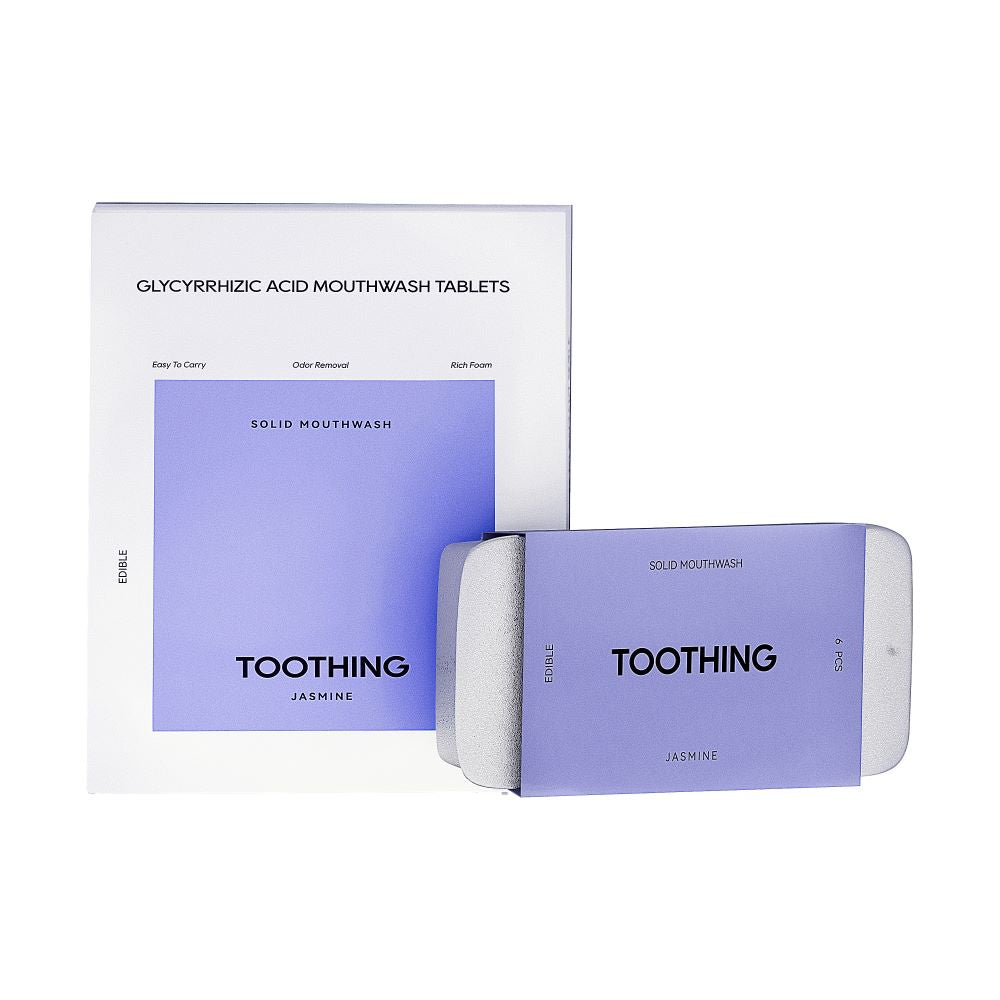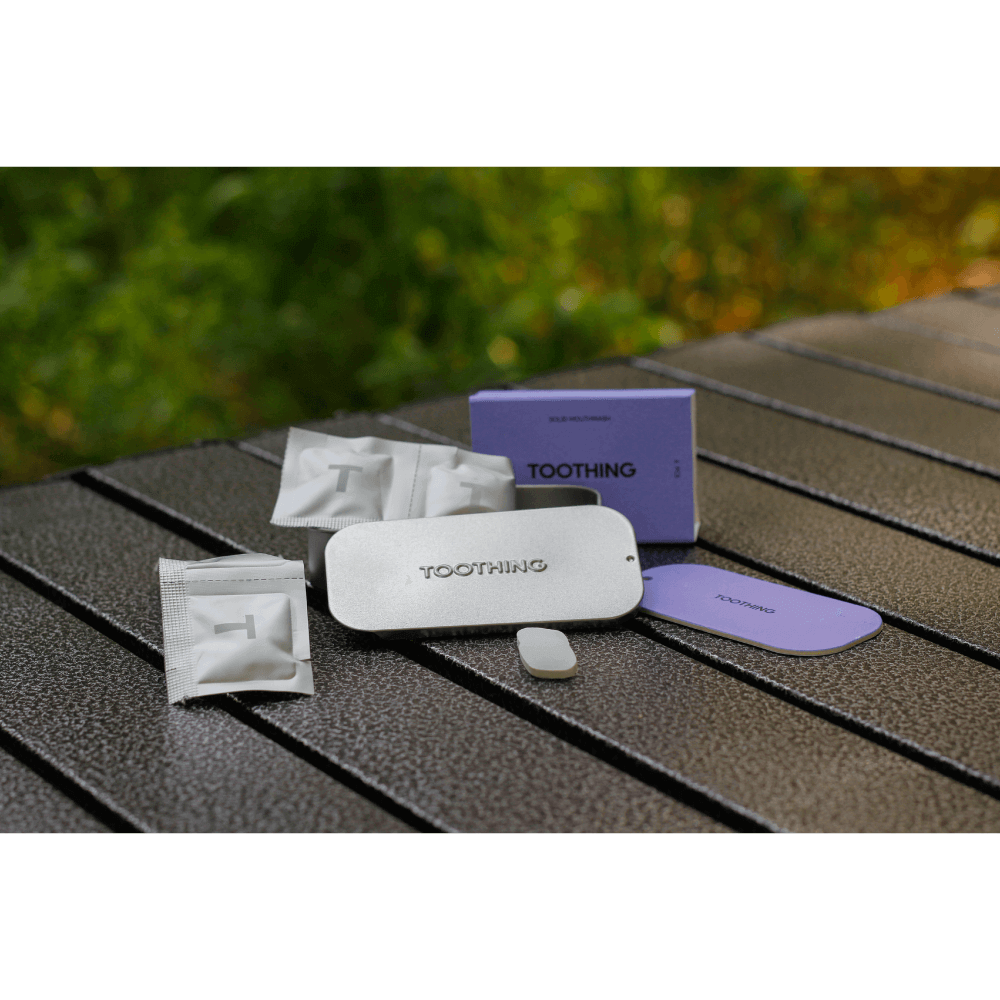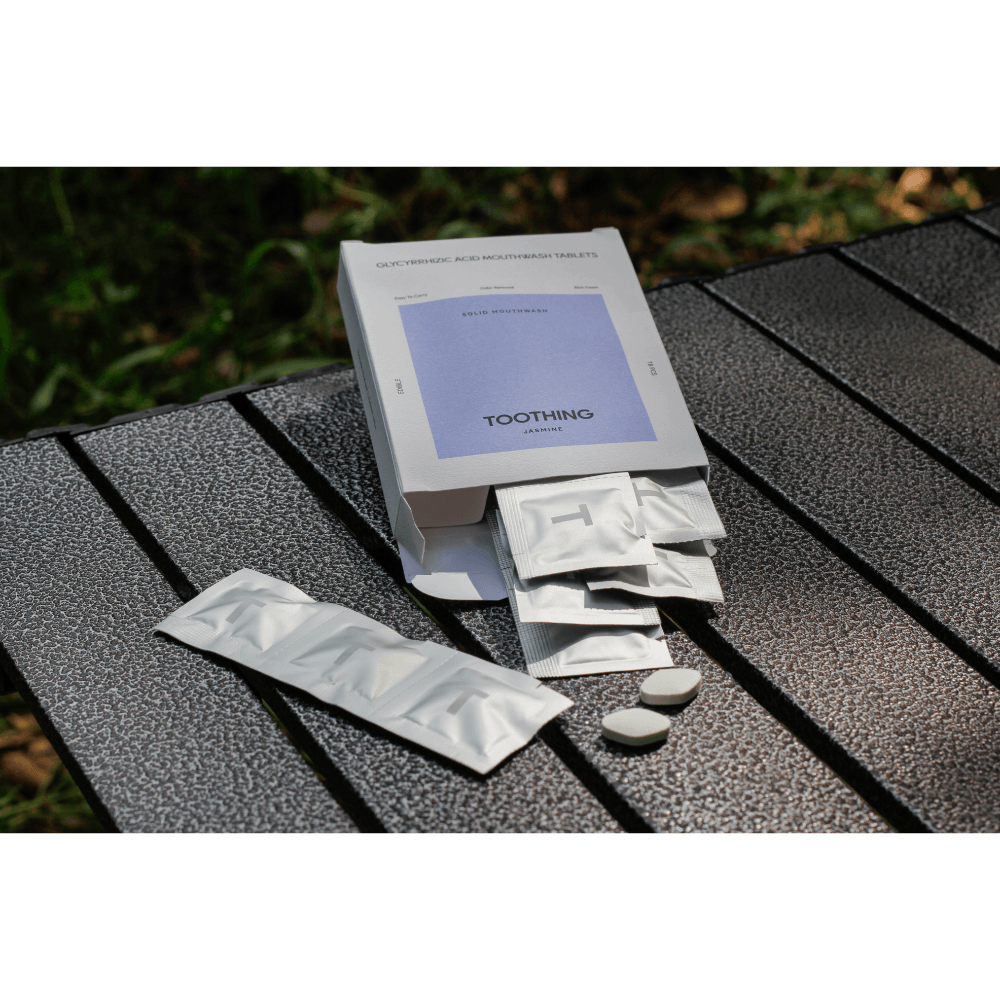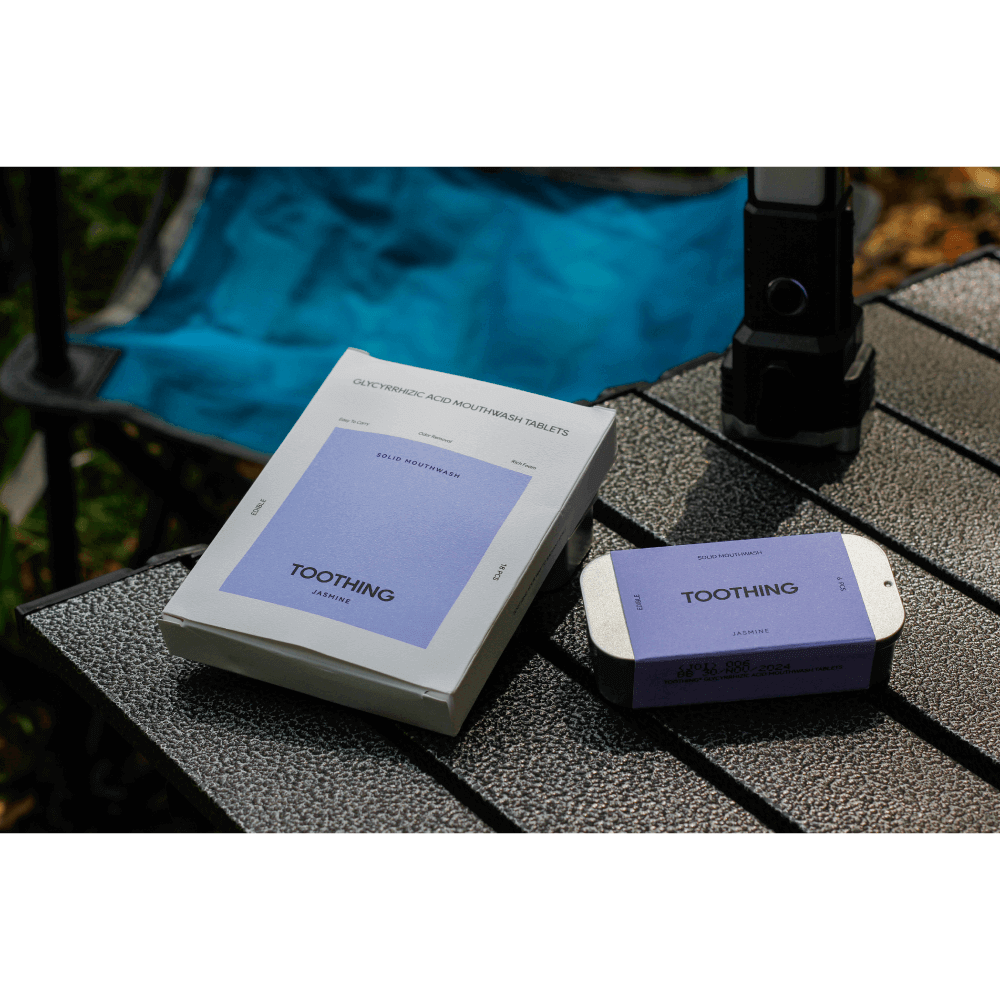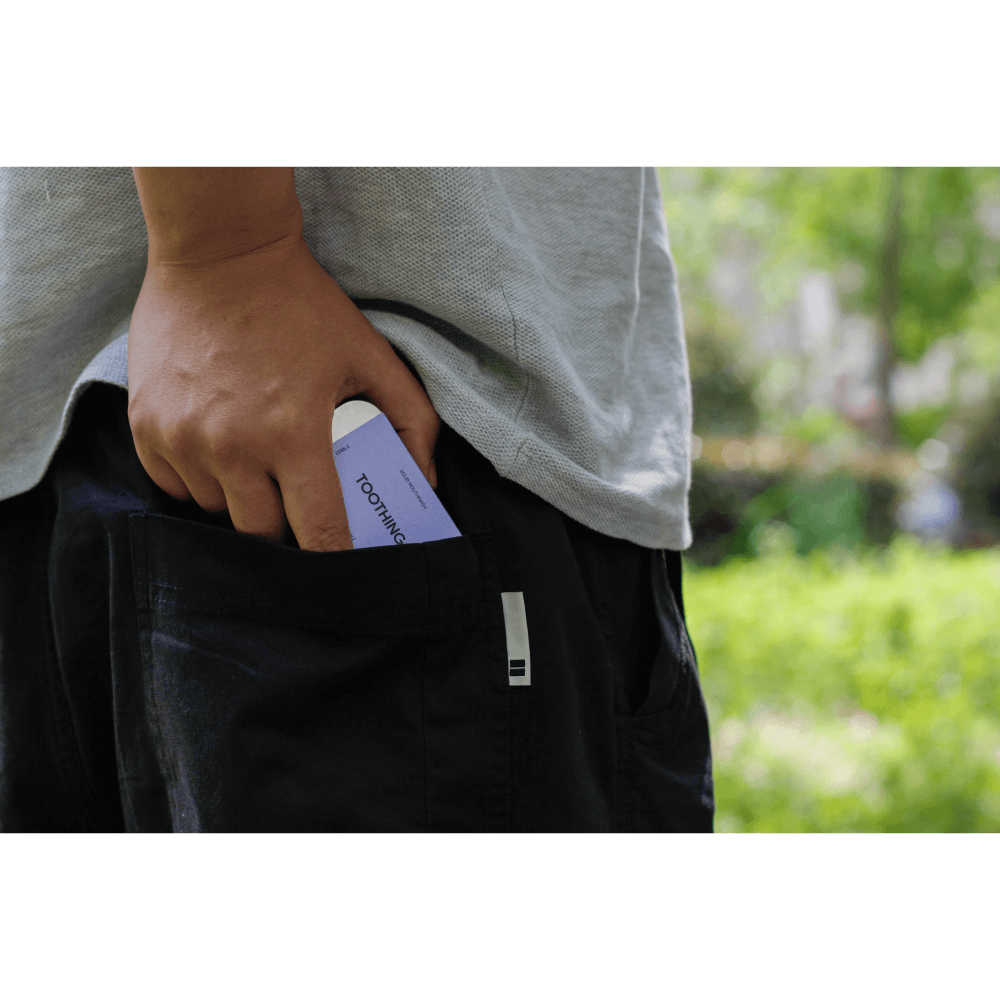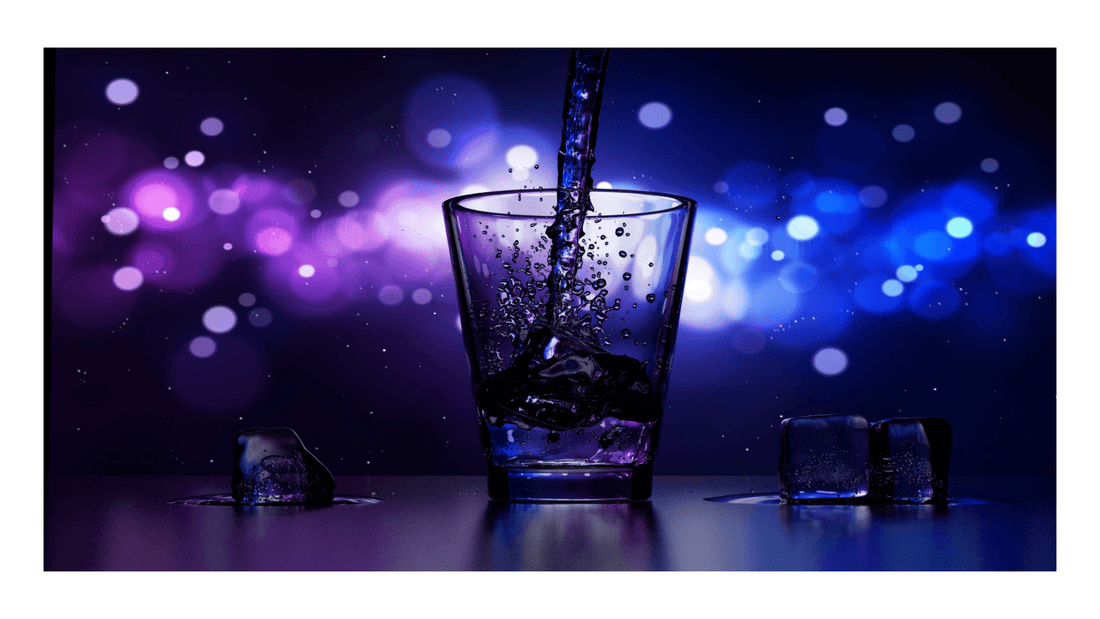
Alcohol-Free Mouthwash: Is Alcohol Really the Best Germ-Killer?
When choosing a mouthwash, many people opt for products that contain alcohol. But is alcohol really the best option for killing germs and maintaining oral health? In this blog, we’ll explore why traditional mouthwashes are so harsh, and what safer, alcohol-free alternatives are available, including our innovative portable mouthwash tablets made with glycyrrhizic acid extract.
Why Traditional Mouthwash Tastes So Harsh
If you’ve ever experienced the burning sensation of a traditional mouthwash, you’re likely familiar with the main culprit—alcohol. The alcohol in mouthwash is primarily ethanol, which acts as a solvent and an antiseptic. It disrupts the cell membranes of bacteria, fungi, and viruses, effectively killing them.
However, the downside of alcohol-based mouthwashes includes:
- Dry Mouth: Alcohol can reduce saliva production, which can increase the risk of cavities and bad breath.
- Irritation: It can irritate sensitive gums and exacerbate oral health conditions.
- Harsh Taste: The strong flavors of menthol and alcohol create that sharp, burning sensation, often leading to discomfort.
Alcohol-Free Mouthwash Alternatives
Luckily, alcohol isn’t the only option for creating a highly effective mouthwash. Here are some scientifically backed alternatives that are gentle, effective, and safe for daily use.
1. Glycyrrhizic Acid Extract (Licorice Root Extract)
One of the best alcohol-free alternatives for oral care is glycyrrhizic acid extract. This natural ingredient has anti-inflammatory, antibacterial, and antiviral properties. It’s gentle on your mouth and helps fight bacteria without drying out the gums or causing irritation.
2. Cetylpyridinium Chloride (CPC)
CPC is an antimicrobial agent that effectively kills bacteria, reduces plaque, and prevents gum disease. It offers similar benefits to alcohol but without the harsh side effects, making it a popular ingredient in alcohol-free mouthwashes.
3. Xylitol
Xylitol is a natural sweetener that not only helps reduce cavity-causing bacteria but also increases saliva production, which is vital for oral health. It’s safe for everyday use and leaves your mouth feeling refreshed.
4. Essential Oils
Certain essential oils, such as tea tree oil, peppermint, and eucalyptus, possess natural antibacterial and anti-inflammatory properties. They are a good and enjoyable alternative to alcohol-based mouthwash.
When used with an essential oil diffuser for large room, they can also help clean the air in large rooms.If you choose an essential oil diffuser with LED lights, the atmosphere will improve your experience. This will help you feel a new level of relaxation and comfort.
5. Chlorhexidine Gluconate
For more intensive care, chlorhexidine gluconate is often used to treat serious oral health issues like gingivitis. It’s highly effective but is typically recommended for short-term use due to potential side effects like staining of the teeth.
Potential Side Effects of Alcohol-Free Mouthwash Ingredients
While these ingredients are generally safe, it’s important to be aware of possible side effects:
- Glycyrrhizic Acid Extract: Rare cases of high blood pressure have been associated with excessive use.
- CPC: May cause mild tingling or taste changes with prolonged use.
- Xylitol: Safe for humans but toxic to pets, so be cautious with storage.
- Essential Oils: Can cause irritation if overused or if you're allergic to certain plant oils.
- Chlorhexidine Gluconate: Can cause tooth staining and should only be used as directed by a dentist.
Final Thoughts: Is Alcohol Necessary for Good Oral Health?
While alcohol is effective at killing germs, it’s not the only option—and certainly not the most gentle. Alcohol-free mouthwashes made with ingredients like glycyrrhizic acid extract offer a safer, more comfortable alternative that doesn’t sacrifice effectiveness. Whether you’re looking for a daily oral care solution or something portable for your busy lifestyle, alcohol-free options are the way forward.
Ready to Make the Switch?
Try TOOTHING portable mouthwash tablets today and experience the benefits of an alcohol-free mouthwash that supports your oral health without the burn.
Alcohol-Free (14) dental care (11) Glycyrrhizic Acid (11) Naturally Fresh (18) Oral Hygiene (22) portable mouthwash (9)


